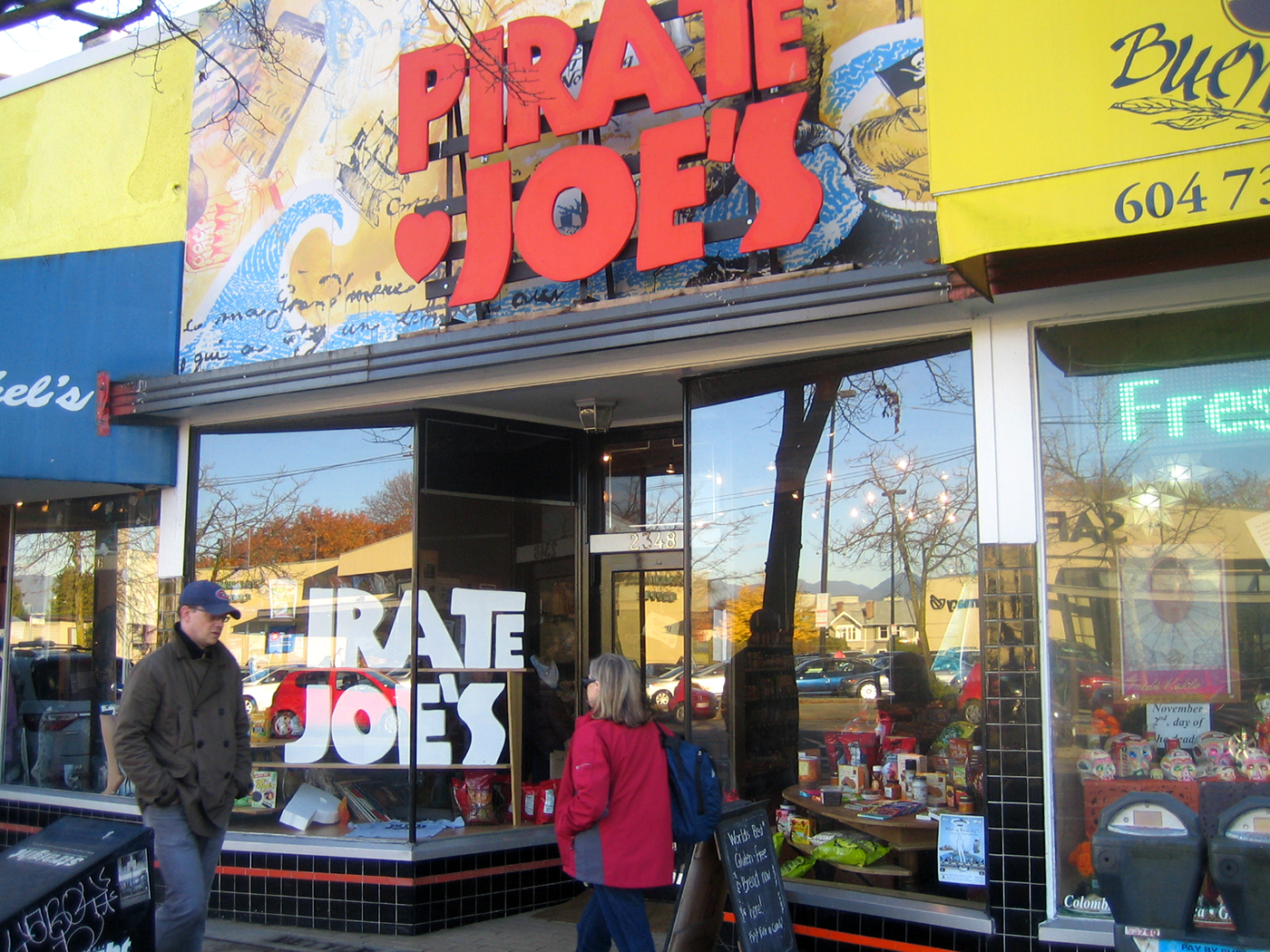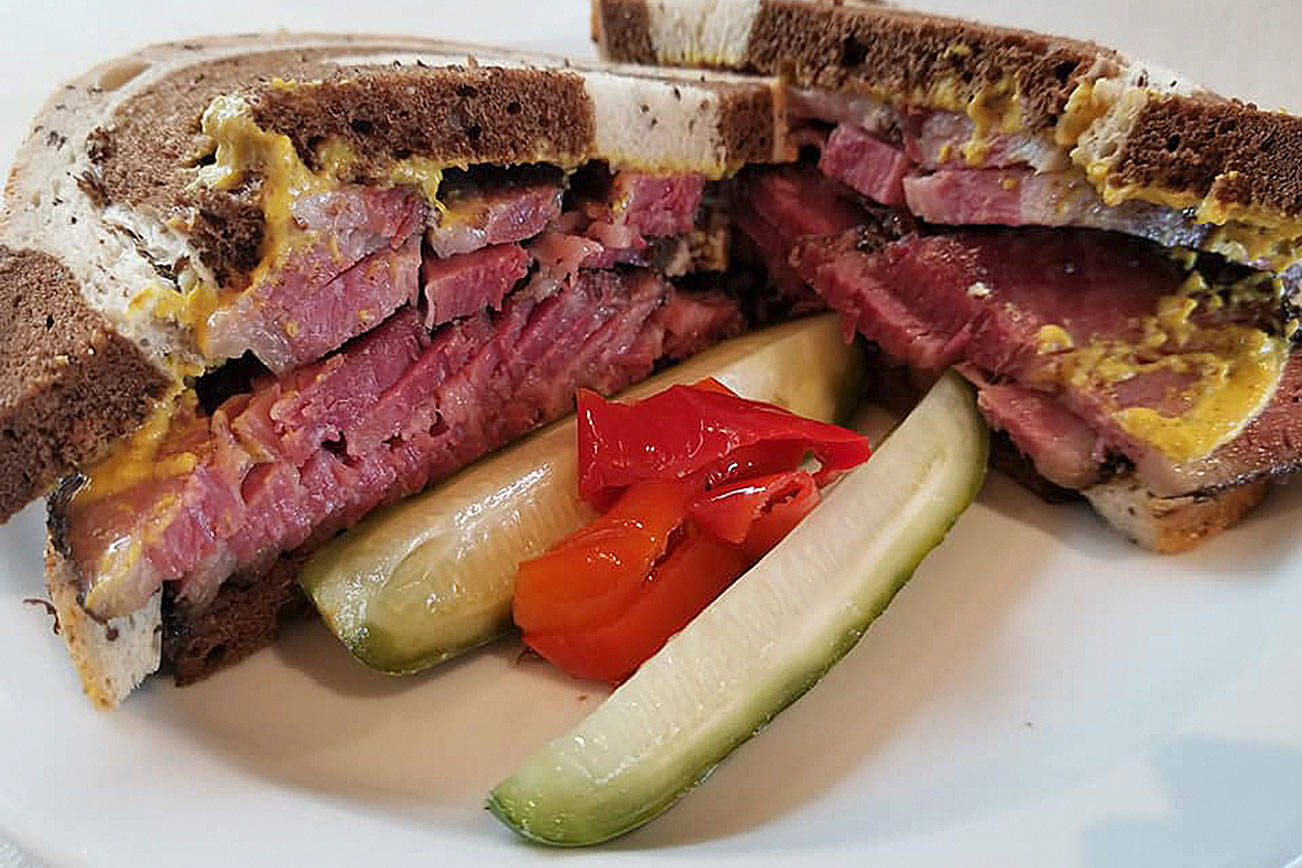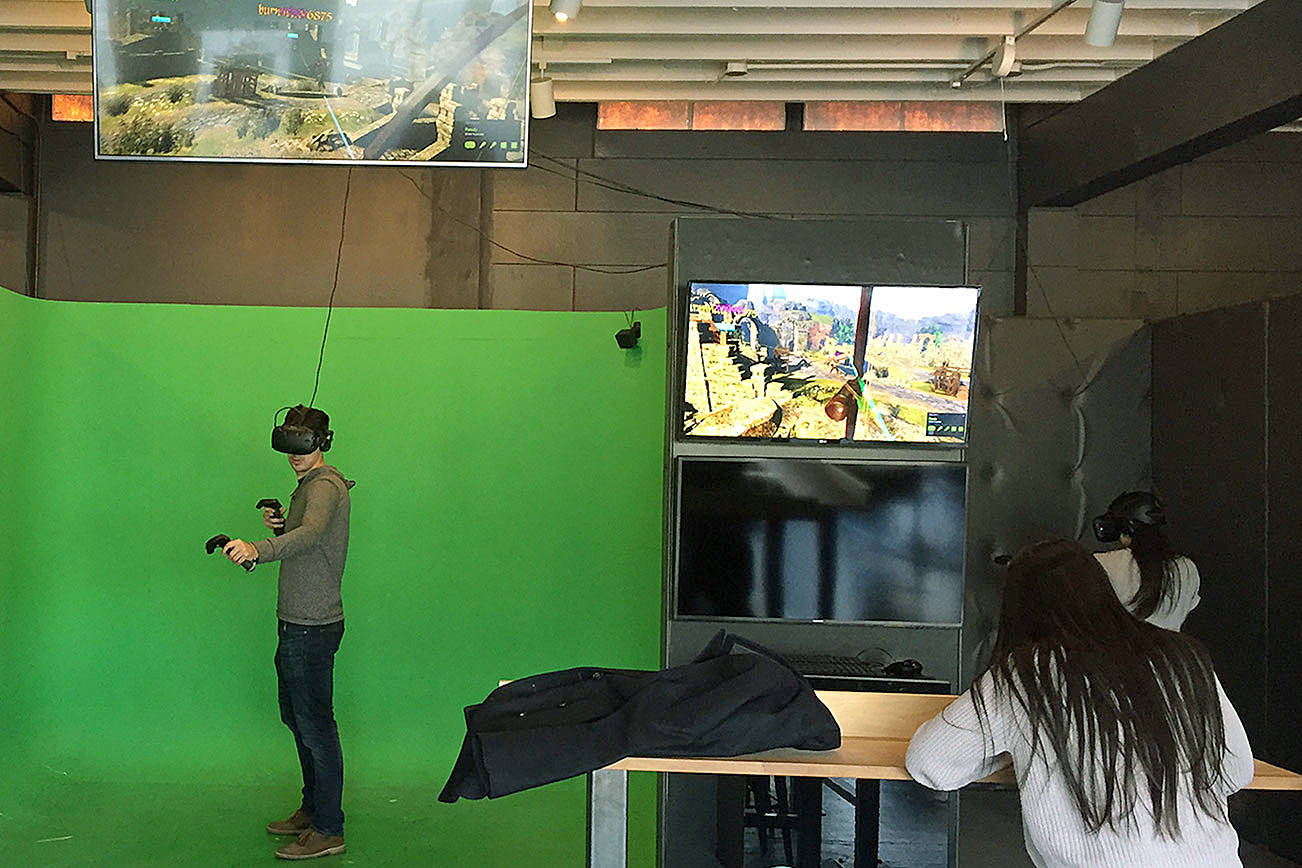Anyone calling the Pirate Joe’s in Vancouver, B.C., during off hours is greeted by the following message:
“You’ve reached Pirate Joe’s at 2348 West Fourth, between Balsam and Vine on the south side of the street across from Safeway. We’re open from 10 a.m. to 8 p.m. seven days a week. And if you’re calling during business hours, we’re at the till. Best results are to call back in a couple minutes and bug us. We’ll pick up, and we’ll tell you what we have: mostly costumes, pirate stuff, no groceries. No quinoa and black-bean organic tortilla chips—wouldn’t have those. We wouldn’t have white balsamic vinegar or Thai green curry—no way. And the gummy bears from France—no, not at all, none of that. We don’t smuggle stuff from the United States, we don’t bring it in, we don’t even import it, we don’t bother with it. We don’t go to the U.S. at all to get groceries, no, we don’t. Call us, call us back. We’ll tell you what we do.”
These are the words of Michael Hallatt, 53, who for nearly two years has been purchasing thousands of Trader Joe’s products and reselling them in Canada, where there happen to be no locations. In October, a trademark-infringement lawsuit against Hallatt was dismissed by a Washington state judge, who ruled that Trader Joe’s is not being harmed economically by his actions.
Since Hallatt’s picture is posted in various Trader Joe’s stores like a cartoon “Wanted” sign, he now hires stealth shoppers (for $200 a day) to make obscenely large purchases for him, often using Craigslist ads that simply solicit “General Labor.” Although he won the trademark suit, that doesn’t stop stores from refusing him service. His crew has been confronted by managers, yelled at, and followed out of the store (though a few clerks, they say, have whispered their support).
“Sometimes I don’t know if they’re going to come out with no groceries or $4,500 worth. The key,” Hallatt tells me, “is plausible deniability.” As long as they can’t link the shoppers to Hallatt and his vehicle, there’s no effort to deny the sale. (In one instance, a Trader Joe’s manager stood next to pirate shoppers while they waited with groceries, so they called Hallatt and said “Mom, where are you?” He had a cab pick them up instead.)
Curious about how his operation worked, I recently joined Hallatt on one of his shopping trips . . . sort of. Earlier in this excursion, the shoppers had hit nearly every Trader Joe’s in the state, beginning in Bellingham—the location most frequented by Vancouverites—and making their way down through Everett, Lynnwood, Ballard, Queen Anne, the U District, and lastly Capitol Hill, where I waited to meet them.
With such a rogue business, you’d have expected a flamboyant vehicle resembling Seattle’s Seafair Pirate bus, or at least something like the Maximus Minimus pig truck. What swung around the corner, however, was simply a white unmarked van. From it emerged two affable guys in their 20s, not an eyepatch among them. (Both asked not to be named, so we’ll just go with Blackbeard and Calico Jack.)
When the crew entered Trader Joe’s, I was hoping for a chaotic rush through the store in the vein of the old game show Supermarket Sweep, but they merely sauntered lackadaisically around the aisles as if perusing bookstore shelves. This Capitol Hill trip, apparently, was a potato-chip run. Blackbeard parked his cart in the chip aisle and gradually loaded up. “The healthier, the better,” he remarked, carefully inspecting the bags before grabbing them.
As the chips began to tower over the edge of the cart, customers and employees curiously looked on. “That’s a lot of chips,” said a passing customer. “What are you doing?” asked another. Both comments were met with only a polite smile. One person accidentally bumped the cart and sent about five or six bags to the ground. Everyone laughed.
The bountiful, occasionally overflowing carts were then slowly wheeled to separate checkouts. “Munchies,” quipped Blackbeard as I stood behind him like an idiot with my single bottle of juice. There was no interrogation of the pirate shoppers, no ringing of bells or calling the manager. While an extra employee helped bag, Blackbeard assuaged the clerk’s curiosity by telling him the chips were for a giant Halloween party. Across the way, Calico Jack exchanged less conversation and helped bag his two carts of groceries.
Any onlooker would have assumed they were in cahoots, or at least going to the same Halloween party.
“Do you need any help carrying these out?” they were both asked.
“No,” they both responded.
“Have a wonderful party,” said the clerk.
Back at the van, the groceries were loaded into a space already filled to the brim with about 150 Trader Joe’s bags, containing over 1,400 items costing north of $5,000. It was a little after 10 p.m. Hallatt wore torn jeans, an IKEA blanket thrown over his shirt, and a red toque with a maple leaf on it. Only the presence of illicit drugs and guns could have made the scene look more illegal, but any feeling of criminal behavior was immediately shattered when Hallatt asked the boys, “Did you get those rice crisps?” (They did.)
On an average week, two separate trips are taken south, hauling in approximately $9,000 in groceries. They go pretty fast.
While the van comes across as seedy, the store in Vancouver is adorable and quirky. Little lights hang from wooden rafters made to look like the bottom of a ship, an image enhanced by wavy swirls framing an ocean-blue wall. Various Trader Joe’s products line the shelves and tables. In the corner, a record player spins old jazz, and sitting on a door frame in back is a copy of Joe unter den Piraten, a German translation of the Jack London novel. Because of its small size and the preponderance of treats, the entire store smells like chocolate.
Hallatt buzzes around Pirate Joe’s charismatically, joking with customers and handing out samples. “This box of chocolate almonds fell and broke open,” he says to a customer, smiling, “so we’re handing them out.” Several walk-ins dash to their favorite products, put in requests for new ones, and congratulate Hallatt on his legal win. “It saves me a two-hour wait at border lineups,” says a frequent customer. “I pay a little bit more here, but it’s not that bad. We were very excited when the place opened up.”
The store regularly features around 1,200 different items—from chips to pasta to dried fruit to Trader Joe’s reusable bags. The bestselling product is Triple Ginger Snap Cookies. “I don’t like to be open unless I have them in,” says Hallatt. He used to carry frozen goods regularly, but has temporarily phased them out due to the lawsuit and the difficulty of transporting them. “I lost almost half of my sales when I dropped the frozen goods,” he says.
Obviously, there are markups. A bag of Powerberries, dark-chocolate-covered fruit pieces, sells for $3.49 (all funds USD) at home and $6.68 at Pirate Joe’s. (Oddly enough, Trader Joe’s sells them on Amazon for $12.99). Goddess salad dressing jumps from $2.29 to $3.81. Markups, typically $1 to $3, generally depend on the item’s ease of transport—meaning how many can be crammed into a shopping cart.
Even so, Hallatt notes that transportation costs, duties, rent, and staff wages prevent this from being a hugely lucrative operation, especially considering the long hours he puts in: “I could drive a cab and make more money.”
Hallatt clearly enjoys having a little fun with the whole thing. He sells “I’m shopping for Pirate Joe’s” T-shirts, and has “Better than Nothing” engraved in the sidewalk. When the lawsuit was launched, he removed the “P” from his sign in the window, so it simply read “IRATE JOE’S.” Across from the sign proudly hangs a piece of hate mail—one of the two pieces he’s received, Hallatt says—saying that “What you are doing is not right” and “If us Vancouverites/Canadians want Trader Joe’s, we can go down to Bellingham and buy the products.”
What’s a little uncertain is the endgame. Hallatt has no immediate plans for Pirate Joe’s, and is awaiting further legal action from Trader Joe’s before taking any next steps, which could eventually include a bigger store and various locations throughout Vancouver. He says he’ll close if Trader Joe’s moves to Canada, but doesn’t see this as a campaign, and he had no idea the business would last.
“It’s been a great experience,” says Hallatt, “and we do provide a service. Is there a cause? No, but I’m not going to quit. We’re getting closer.”
“Closer to what?” I ask.
“I don’t know,” he says, chuckling.
Hallatt currently has an idea for a healthy fast-food burger joint, and wants the logo to be a big black letter M. You can see where that’s going.
food@seattleweekly.com








